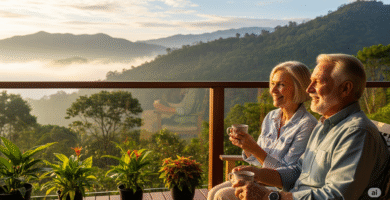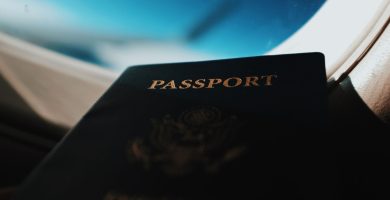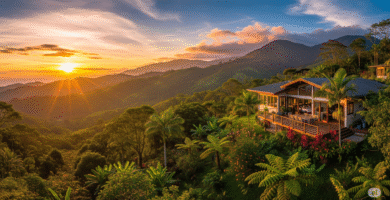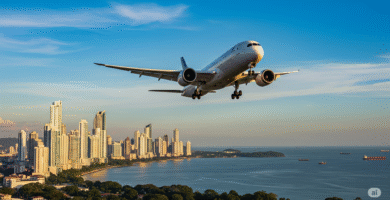
Moving to Panama: Why More Expats Are Choosing This Destination
Panama has become one of the most attractive destinations for people seeking a new life abroad. Known for its strategic location, warm climate, tax advantages, and welcoming policies for foreigners, this small Central American country offers countless opportunities for those willing to relocate. Whether you are seeking a more affordable lifestyle, a new business venture, or simply a change of scenery, moving to Panama can be a rewarding experience.
However, unlike what many guides suggest, relocating is not just about packing your bags. There are cultural, legal, and logistical aspects you must understand before making the move. During my time living in Panama, I discovered that behind the tropical beauty, there are also real challenges to consider. For example, in some areas, especially rural ones, basic services such as electricity, water, and internet can be unreliable. I recall living in Panama Oeste for a while, and it was common to experience water or power outages every week.
Despite these challenges, Panama’s small size makes it easy to access essential goods and services. Even if you choose to live in a secluded area, you are never too far from a city where you can stock up on necessities. This balance of natural beauty and accessibility is one of the reasons many expats choose Panama as their new home.
Panama Residency and Visa Requirements: Your Complete Guide
Obtaining legal residency is the first step to settling in Panama. The country offers several visa options designed to attract foreign investors, retirees, and professionals. The most popular option is the Friendly Nations Visa, which enables citizens of select countries to establish residency with relative ease by demonstrating economic ties to Panama, such as starting a business or purchasing property.
Other options include the Pensionado Visa, available for retirees with a lifetime pension of at least $1,000 per month, and investment visas for those willing to invest in real estate or businesses. Each visa has its own set of requirements, paperwork, and processing times.
Based on my experience, dealing with bureaucracy in Panama can be complex if you try to do it alone. I strongly recommend hiring a reliable lawyer to handle your paperwork discreetly. One thing I learned is that it’s better if people do not know your lawyer is working for a foreigner, as this can help you avoid unwanted attention from opportunists or corrupt officials.
The process may seem overwhelming at first, but with the right professional guidance, obtaining legal residency in Panama can be straightforward and stress-free.

Retire in Panama: Benefits, Visas, and Financial Planning

Pets to Panama: Secure, Simple, and Loving Journey for Your Pet

Panama Visitor Visas Requirements: Avoid Hassles with This Simple Guide
Cost of Moving to Panama: Budget and Expenses to Consider
The cost of relocating to Panama varies depending on your lifestyle and where you choose to settle. While many expats move to Panama expecting everything to be cheap, the reality is more nuanced. Cities like Panama City can be expensive, especially when it comes to housing and imported goods. On the other hand, smaller towns and rural areas offer lower costs but come with fewer amenities.
Your relocation budget should cover visa fees, legal services, flights, temporary accommodation, and moving services if you plan to bring personal belongings. Additionally, factor in the costs of buying or renting a property, as well as setting up basic services like electricity, water, and internet.
From personal experience, one hidden cost to consider is dealing with unreliable infrastructure in some regions. If you live outside the main cities, you may need to invest in water storage systems, power generators, or backup internet solutions. These are not luxuries but necessities in areas where services are inconsistent.
Despite these expenses, many find that Panama still offers a cost of living that is lower than in North America or Europe, especially when it comes to healthcare, transportation, and local food.

Panama Real Estate for Expats: Complete Buying Guide

Cost of Moving to Panama in 2026: The Complete Guide

Panama City Restaurants: Hidden Gems and Must-Try Eats
Where to Move in Panama? Comparing Cities and Interior Towns
Choosing the right location is one of the most critical decisions when moving to Panama. The country offers a wide range of options, from bustling Panama City to tranquil towns surrounded by nature.
Panama City is the economic hub, with modern infrastructure, international schools, and a wide variety of services. However, it also comes with higher costs, traffic congestion, and a fast-paced lifestyle.
In contrast, interior towns such as Boquete, Coronado, or Pedasí offer a slower pace of life, cooler climates in some regions, and closer connections with local communities. These areas attract expats who value peace, natural beauty, and lower living costs.
However, living in the interior comes with its challenges. Not all towns have reliable internet, water, or power. This is something I experienced—many times, living surrounded by nature came at the cost of dealing with frequent outages. Yet, the friendliness of residents often compensates for these inconveniences. In smaller towns, people still greet you with a smile and a “buenos días,” which creates a welcoming environment for those willing to adapt.
Buying Property in Panama: How to Avoid Scams and Legal Traps
Panama’s real estate market is attractive to foreigners, but it is also full of risks. One of the most common scams involves selling the same piece of land to multiple buyers. In the end, nobody becomes the rightful owner. To avoid this, it is essential to verify property titles, work with a trustworthy real estate agent, and—most importantly—hire a competent lawyer.
During my time in Panama, I witnessed cases where foreigners lost their investments because they skipped proper due diligence. Always ensure the property you are buying has clear ownership records and is eligible for basic services like water, electricity, and internet.
Additionally, never rush into a deal. Panama’s bureaucracy can be slow, but thorough legal checks are your best defense against fraud.
Challenges You Might Face When Relocating to Panama (and How to Solve Them)
While Panama offers many advantages, relocation is not without challenges. The most common issues expats face include:
- Infrastructure problems in rural areas
- Language barriers for those who don’t speak Spanish
- Cultural misunderstandings leading to conflicts with locals
- Bureaucratic hurdles when dealing with government offices
I believe one of the keys to overcoming these challenges is building good relationships with locals. In the interior, people are extremely friendly, but they also value respect for their traditions. I have seen situations where foreigners provoke unnecessary conflicts by criticizing local customs. If you cannot embrace cultural differences, you may struggle to adapt.
Being flexible, patient, and open-minded will make your transition to Panama much smoother.
Final Tips for a Smooth and Safe Relocation to Panama
Relocating to Panama can be a life-changing experience, but preparation is key. Here are some final recommendations:
- Hire a discreet lawyer to handle paperwork and protect you from scams.
- Research the area you plan to live in to ensure it has the services you need.
- Respect the culture and integrate into the community—it will make your life easier.
- Be cautious with real estate deals and never skip legal checks.
- Have backup plans for infrastructure challenges, especially outside major cities.
Panama is a country full of opportunities, natural beauty, and friendly people. If you approach the move with awareness and respect, you will not only avoid the common pitfalls but also enjoy everything this country has to offer.
5 FAQ about Moving to Panama
1. Is it easy to get residency in Panama?
Yes, Panama offers several residency visas, such as the Friendly Nations Visa and Pensionado Visa. With proper legal assistance, the process is straightforward, though bureaucracy can still cause delays.
2. How much money do I need to move to Panama?
Your budget will depend on where you plan to live. Initial relocation costs, including legal fees, flights, and temporary housing, may range from $5,000 to $10,000. Living expenses vary widely between Panama City and rural areas.
3. Can foreigners buy property in Panama?
Yes, foreigners can buy property in Panama with the same rights as locals, except for restricted areas near the borders. However, scams are common, so thorough due diligence and legal verification are essential.
4. What are the biggest challenges of moving to Panama?
Unreliable infrastructure in some areas, cultural differences, language barriers, and real estate scams are among the top challenges. Being prepared and hiring professionals can help you avoid these issues.
5. Do I need to speak Spanish to live in Panama?
While English is widely spoken in tourist and business areas, speaking Spanish will significantly improve your daily interactions and help you integrate into local communities.
